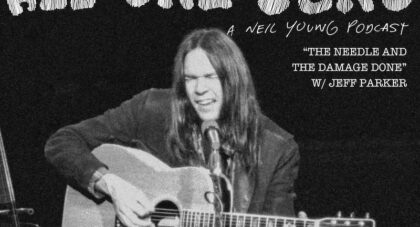Eric D. Johnson reflects on 20 years of Fruit Bats, working with The Shins and Bonny Light Horseman, and his new album, The Pet Parade. Johnson joined us for a discussion about the new album, home recording, the pandemic, and how it feels to walk his musical path for two decades . . .
Only the good shit. Aquarium Drunkard is powered by its patrons. Keep the servers humming and help us continue doing it by pledging your support.
To continue reading, become a member or log in.


